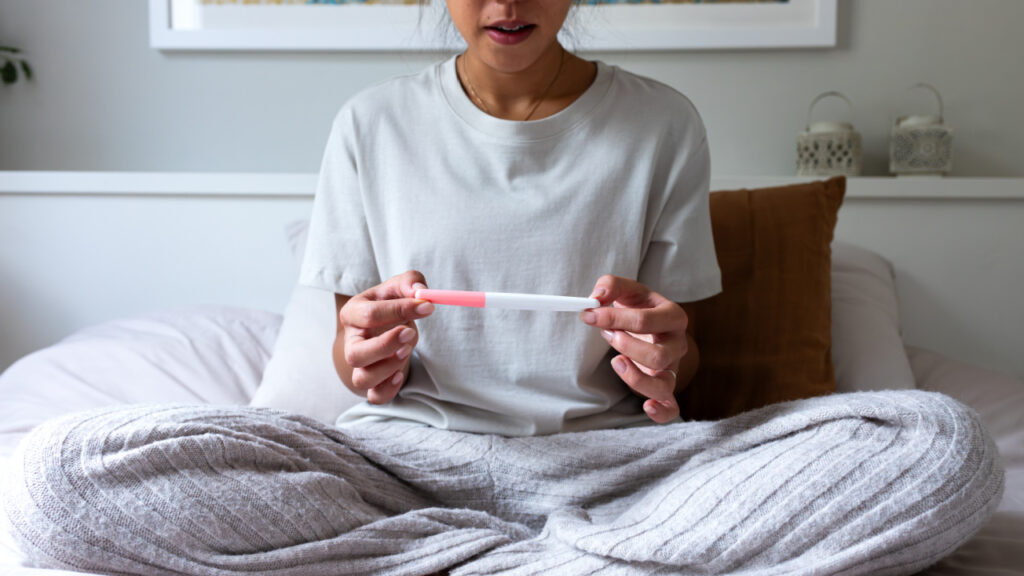
How Being Silently Pissed-Off is Fueling Autoimmune Disorders in Women of Color
Exactly one year ago, I welcomed my mom home with her suitcases and dogs. After 18 years apart, she needed a place to stay. Her muscles were torn, she could hardly move, and the pain in her body was unbearable. She had an autoimmune disease.
But more than the bodily disease, my mom had deep sadness and pent-up anger. After years of family conflict, the loss of my grandmother, and an exploitative job, Mom just couldn’t take it anymore. We went to several doctors and did every test possible. In theory, there was no reason for her body to be reacting that way—at least, there was no reason beyond her anger and sadness.
We realized that this had happened to many of her friends and acquaintances her age. And science seems to have come up with the reason.
New research has uncovered why women are much more prone to autoimmune disorders
Stanford Medicine scientists and their colleagues found that a molecule made by an X chromosome in every female cell can generate antibodies against a woman’s own tissues.
In the United States, for example, between 24 and 50 million people suffer from some form of autoimmune disease. Four out of five of these people are women.
Examples of these diseases are rheumatoid arthritis, multiple sclerosis, scleroderma, and fibromyalgia. These diseases have an unequal ratio between women and men. The ratio for lupus is 9 to 1; for Sjogren’s syndrome, it is 19 to 1.
“As a practicing physician, I see a lot of lupus and scleroderma patients because those autoimmune disorders manifest in the skin,” said Howard Chang, MD, PhD, dermatology professor and genetics professor and a Howard Hughes Medical Institute investigator. “The great majority of these patients are women.”
A risk associated with an X
Throughout the mammalian kingdom, biological sex is determined by the presence of two X chromosomes. Males have one X and one Y. Ironically, the Y has very few active genes, and one can live a full life without it. But no one can live without an X, of which we women have two.
If the X chromosome is inactivated in autoimmune diseases, these disorders can appear. This happens thanks to a molecule called Xist that teams up with proteins to prevent female cells from activating a double (and deadly) dose of genes on the X chromosome.
“This is like a completely different and novel explanation for female bias in immune disease,” said Chang. “What our study really showed was that it’s not just the second X chromosome. It’s actually a very special RNA that comes from that second X chromosome, and just that RNA perhaps plays a major role.”
This role, obviously, is associated with reproduction. Some researchers have suggested that it may be an “evolutionary relic.” A sort of immune hypervigilance to increase the chances of pregnancy.
However, it appears that anger is an important trigger in the suppression of the X gene
For Dr. Gabor Mate, a world-renowned trauma and stress physician, repressed anger often manifests as an autoimmune disease. Mate describes in his book “When the Body Says No” how it is often the “nice people” who end up having autoimmune responses in the body.
Psychology and writer Maytal Eyal has explained this in length in her podcast, “Heal With It.”
“My clients are mostly women, and nearly all of them struggle with a fear of disappointing others,” Eyal wrote in her column for TIME. “Our culture rewards women for being perpetually pleasant, self-sacrificing, and emotionally in control, and it can feel counterintuitive for my clients to say ‘no’—or firmly assert their wants and needs.”
It is these women who account for almost 80% of autoimmune disease cases. Similarly, women experience depression, anxiety, and PTSD at twice the rate of men and face a ninefold higher prevalence of anorexia, according to Eyal.
“Such jarring disparities cannot be accounted for by genetic and hormonal factors alone; psychosocial factors play an important role as well,” she wrote. “Specifically, it seems that the very virtues our culture rewards in women-agreeability, extreme selflessness, and suppression of anger-may predispose us to chronic illness and disease.”
Self-silencing can be lethal for women of color, in particular
More than forty years ago, Harvard psychologist Dana Jack identified that the common pattern among women with depression was a tendency to self-silence. She defined this as “the propensity to engage in compulsive caretaking, pleasing the other, and inhibition of self-expression in relationships in an attempt to achieve intimacy and meet relational needs.”
In 2020, a team of researchers found an increased incidence of autoimmune diseases in people with high levels of stress and depressive conditions.
Two years later, a team of researchers from the University of Pittsburgh found that women of color who strongly agreed with statements like “I rarely express my anger to those close to me” were 70% more likely to experience increased carotid atherosclerosis, a cardiovascular plaque associated with higher risk of heart attack. Other studies have connected self-silencing to irritable bowel syndrome, chronic fatigue syndrome, and cancer among women.
Similarly, other studies have found that rheumatoid arthritis and lupus affect women of color much more.
So, is it time to stop being “nice people” and self-silencing ourselves? Science seems to suggest that it is a matter of life and death.




